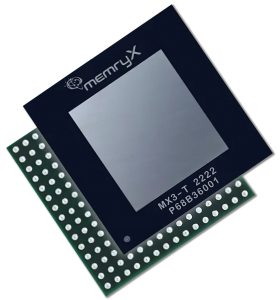
MemryX Inc., a semiconductor company specializing in edge artificial intelligence solutions, has announced the completion of a $44 million Series B funding round. The investment aims to scale the production of its MX3 AI accelerator and further the development of its next-generation MX4 chip.
Founded in 2019 and based in Ann Arbor, Michigan, MemryX has focused on creating energy-efficient AI accelerators designed for edge computing applications. The MX3 chip, one of the company’s flagship products, delivers up to 6 trillion floating-point operations per second while consuming between 0.6 to 2 watts of power per chip. This performance makes it suitable for AI-driven tasks in sectors such as the Internet of Things , transportation, and industrial systems.
The Series B funding round saw participation from both new and existing investors. While the company has not disclosed all backers of this round, previous investors include HarbourVest Partners, M Ventures, eLab Ventures, Motus Ventures, and Arm IoT Fund. This latest infusion brings MemryX’s total funding to approximately $63 million.
Keith Kressin, CEO of MemryX, expressed enthusiasm about the company’s trajectory, stating, “Our software-first core architecture has enabled us to be extremely capital efficient while developing a robust software stack and supporting dozens of customers. It also provides a very strong foundation to build our next-generation MX4 accelerator.”
The MX3 accelerator has already been integrated into various production environments, including AI-driven Video Management Systems, Industrial PCs, and Edge Servers. MemryX offers developers access to performance metrics and benchmarking data through its Developer Hub, facilitating the evaluation of the MX3’s integration into diverse deployment scenarios.
MemryX’s technology leverages a compute-at-memory approach supported by a proprietary dataflow architecture. This design minimizes data movement, enhancing overall throughput and efficiency. The architecture’s compatibility with a wide range of AI frameworks and models simplifies integration, potentially reducing the time from development to production.


